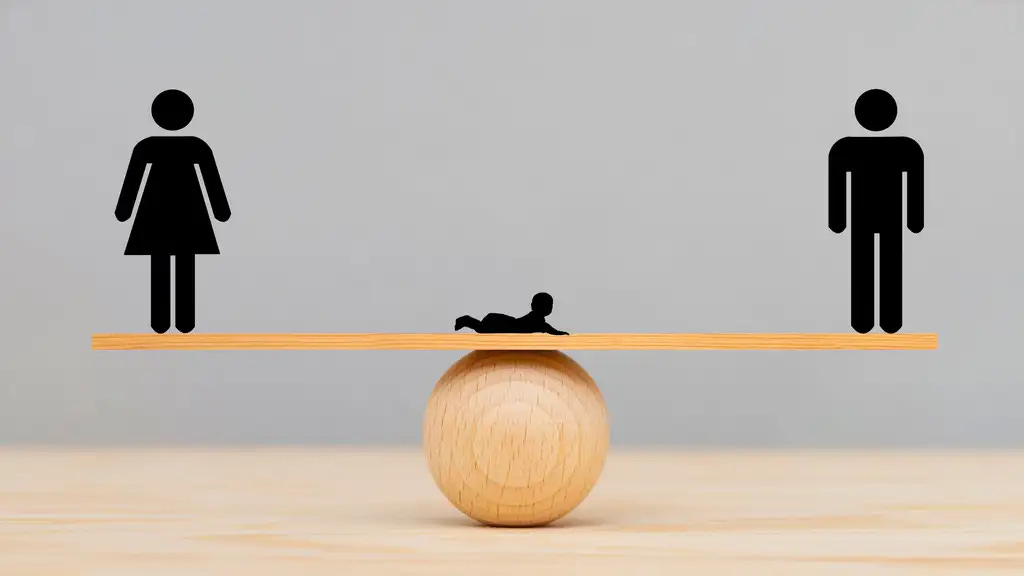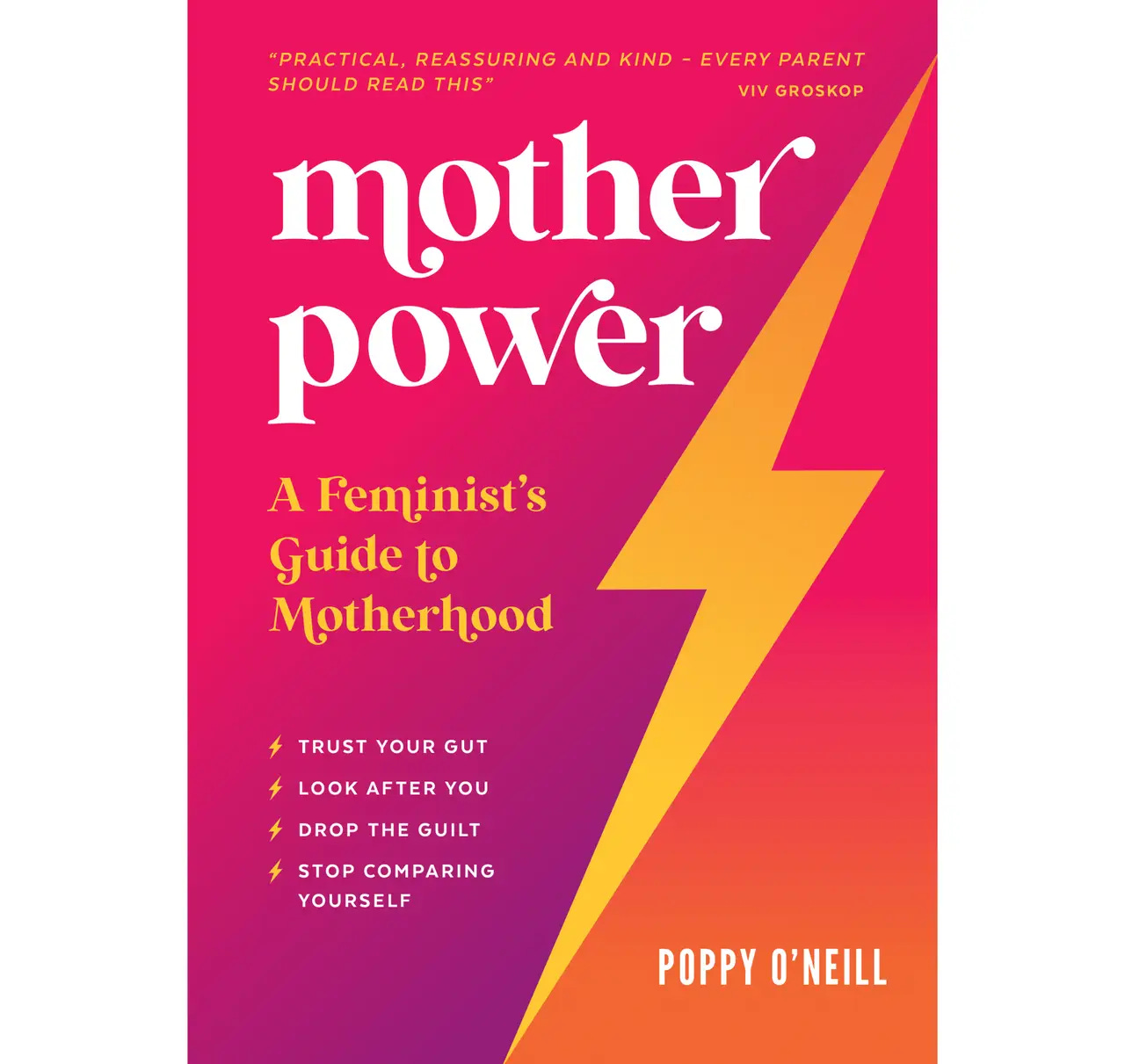(Alamy/PA)
Lauren Taylor talks to Mother Power author Poppy O’Neill about inequalities in parenthood – and how to fight back.
Sexism affects women in different ways at different stages of life – and one point where the gap between cis men and women can really feel like a gulf, is when there’s a baby in the picture.
Poppy O’Neill, author of Mother Power: A Feminist’s Guide To Motherhood, says we’ve “come so far” that sometimes, women can now get through their teens and 20s without “sexism being so obvious that it’s hard to ignore” (although that isn’t the case for everyone, of course, and many young women’s lives are sill heavily impacted).
“When you become a mother,” O’Neill adds. “It does kind of hit you in the chops.”
From pregnancy and birth to the newborn days, and later balancing motherhood, work and childcare, mums often feel their own needs come last.
It’s important to highlight that injustices exist within partnerships and families too – and for women balancing work with kids.
(Poppy O’Neill/PA)
So, what does motherhood mean for feminism? And how can we make sure we’re seen and treated as equals, particularly in heterosexual partnerships, when there’s a baby – or two or three – in tow?
Put yourself firmly on the priority lift
The idea of self-care can feel laughably impossible if you’ve got a newborn attached to your boob 24/7 and you can’t find five minutes for a shower, but O’Neill says to consciously put yourself on the list of important things to take care of.
“In those early years, time is a very scarce resource and that’s the real kicker – we get into the habit of putting ourselves far down the pecking order. And without any conscious action, that habit can get more and more entrenched.
“We get into that very real ‘there isn’t time for me’ mindset,” she says. “We think once we’ve sorted everybody out, and everything that could potentially be a problem for anyone else, maybe there’ll be time for me at the end – but there never is.”
She urges us never to use the word ‘selfish’ to describe the need for time for ourselves. “When we look after ourselves, we’re looking after the centre of our children’s universe. We are the most important unit for our kids’ survival. When we’re well-rested, we have more patience, we’re more able to play and be emotionally present for our kids – we’re giving them a gift.”
But, most importantly: “I deserve to take care of myself because I’m a human being – not just because it benefits my children. That’s an added bonus.”
Fight to have unpaid work seen as work
(Alamy/PA)
If you’re on maternity leave, a stay-at-home mum, or juggle part-time work with some days of looking after kids, it’s still a 24-hour job, O’Neill says. “But at the same time, we don’t see it as work at all. It’s not recognised, it’s like, ‘Oh you’re just at home playing Duplo’ – as if it isn’t an all-consuming, challenging and skilled job that we didn’t get any training for.”
Have key discussions with your partner before a baby
If you’re at the stage of planning a family, it’s a good time to really find out what your partner’s attitudes are to equality when there’s a baby around.
How will they help facilitate time for you? How will responsibility of the baby be split when they aren’t working? Find out if that person truly sees you as an equal, regardless of how much money you bring in after a baby.
“When it comes to individual relationships and family unit, we (often) repeat what we grew up with,” says O’Neill, “and the pattern that feels normal to us is something that takes a lot longer to change.”
She suggests writing down the jobs that need doing – including taking care of your mental and emotional health – and divvying it up. “Just taking the time and putting in the energy goes a long way, and both parties showing willingness to aim for fairness, and for both people to have leisure time when they’re not in charge of kids is really important.”
Get comfortable with the uncomfortable
When we try and interrupt the status quo – by asking for a rebalance of childcare, housework or leisure time in your relationship after kids, for example – it’s not going to feel easy or natural.
“Setting boundaries, having limits and saying no isn’t going to feel good at first, it’s going to feel like, ‘Oh my god, I’m going to be rejected, this person is going to be really angry with me, I’m doing something wrong’. That feeling is subtly but consistently ingrained,” she says.
(Alamy/PA)
“So be ok with feeling uncomfortable and tell yourself: just because I feel scared, it doesn’t mean something bad is going to happen.
“I like to think of it as the emotional brain saying we’re doing something wrong – that we shouldn’t be saying no to another thing on the to-do list. And the more adult, contemporary, logical mind [saying] this is ok, you are allowed to do this.”
Model expressing your emotions
Anger, for example, is a natural human response – but mothers are often fed a notion that they’re supposed to be caring, nurturing and soft at all times.
However, it’s important to let yourself feel anger when you need to, and express it in a healthy way. “Because emotions don’t go away – if you ignore them, the anger will turn into resentment and it just compounds,” says O’Neill.
She suggests getting into the habit of saying out loud how you’re feeling. For example: “Say, ‘I feel angry that you made a mess, I’m going to take a moment to take a deep breath, calm my body down and then I’ll come back and we can clean it up together’.
“It models that your feelings matter, but also that you are responsible for your own feelings,” O’Neill adds, noting this is a key part of modelling healthy self-esteem to kids.
Do it for positive emotions too – it’s equally as important to express when you feel happy, proud or excited – particularly if it relates to your achievements and joys outside of motherhood.
Show your workplace that motherhood makes you better at your job
There’s a damaging misconception that women return to work less committed after having a baby, when working mothers often report learning to be more efficient.
“You learn so many skills looking after kids, you have to be creative, you have to do problem solving, you have to just be able to deal with whatever comes,” says O’Neill.
Industry-wide attitude change will be a long process and women are up against hundreds of years of inequality in the workplace. “We can all do our bit though,” says O’Neill. Pointing out sexism at work might feel icky, but “speak up – even if your voice shakes”.






